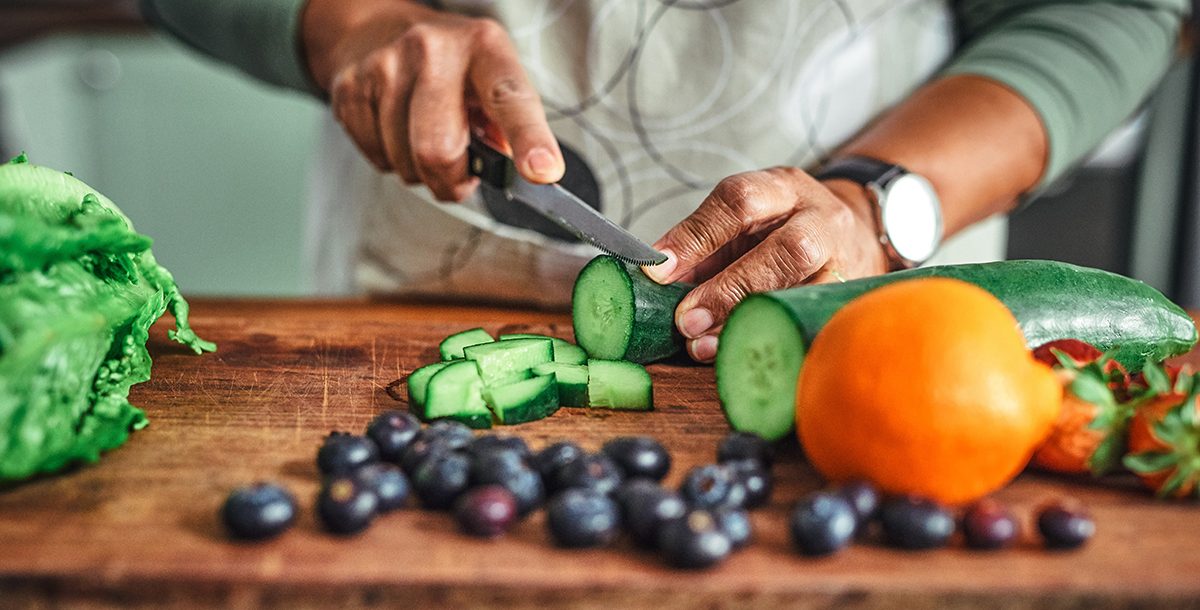Your immune system is one of the most complex biological systems within your body.
A strong immune system supports our health, allowing us to resist infection and disease. When our immune system does its job effectively, we become sick less often. But when the immune system is not working well for extended periods of time, even minor illnesses can have lasting consequences.
Learn about ways you can help boost your immune system by simply making some changes to your diet. When you improve your diet and, in turn, incorporate supplements to boost your immune system, you will enhance your overall health.
PLEASE NOTE: Before making any major dietary changes, it is important to first talk with your primary care provider. They know your personal health history and will be able to tell you what choices are healthiest and safe for you.
Vitamin C
Vitamin C is well known as an immune system booster. This vitamin is an antioxidant that helps reduce oxidative stress and can help prevent infection, or shorten how long infections last.
Some recommended foods that have vitamin C include:
- Broccoli
- Brussels sprouts
- Grapefruit
- Kale
- Oranges
- Papaya
- Red and green peppers
- Spinach
- Strawberries
Vitamin D
Vitamin D is one of the most important and powerful supplements for the immune system. The body makes vitamin D when the skin is exposed to sunlight, but it can be difficult to get enough sun in colder months.
Good food sources of vitamin D are limited, but include:
- Beef liver
- Cheese
- Egg yolks
- Fatty fish, such as salmon, mackerel and tuna
- Fish liver oils
Iron
Iron is a mineral that has many different roles in your body. It’s an essential part of your blood and important for transporting oxygen to cells and tissues throughout your body. In addition to this, iron helps with the production of some hormones and neurotransmitters.
Your body can’t produce iron on its own, so you need to consume it through your diet. Some foods that have iron include:
- Red meat
- Chicken
- Turkey
- Fish
- Clams
- Oysters
- Canned sardines
- Legumes (like beans and chickpeas)
- Nuts and seeds (like cashews and pumpkin seeds)
- Whole grains (like brown rice)
- Vegetables (like spinach and sweet potatoes)
Zinc
Zinc is found in many parts of the body and has many functions. One of the most important roles of zinc supplements in the immune system is as part of the enzyme DNA polymerase, which helps to regulate cell replication and growth. Zinc also plays a key role in the function of white blood cells, which are responsible for fighting off infection.
To increase your zinc intake, you should add the following foods to your diet:
- Legumes (especially pumpkin seeds)
- Grains (whole grains)
- Nuts and seeds
- Mushrooms (portobello and oyster)
- Cocoa powder and dark chocolate
- Spinach and other dark green leafy vegetables
B Complex Vitamins
B vitamins, especially B6 and B12, play an important role in immune function. In fact, these vitamins are involved in many functions throughout the body, including cell metabolism and the production of red blood cells, which carry oxygen throughout your body.
Vitamin B can be found in foods like:
- Meat, poultry and seafood
- Eggs
- Green leafy veggies
- Dairy products
- Enriched grains
Vitamin E
As an antioxidant, vitamin E neutralizes free radicals — unstable molecules that damage cells and may contribute to disease. In addition to boosting immune system function, vitamin E has been found to have several other health benefits, including cognitive function improvement, better skin health and enhanced eyesight.
Plant foods with high-fat content are often good sources of vitamin E, including:
- Almonds
- Sunflower seeds
- Soybeans and soybean oil
- Corn and corn oil
- Spinach, broccoli, asparagus and other dark green vegetables
- Peanuts
- Pine nuts
Vitamin A
When you take vitamin A vitamin supplements for the immune system it helps white blood cells and antibodies fight infection. Vitamin A is important for many functions in the body, especially for healthy vision. Vitamin A helps keep skin and tissues in the mouth, stomach, intestines and respiratory system healthy. This prevents bacteria from getting into the body through those areas.
To consume more vitamin A, choose these colorful foods:
- Carrots
- Sweet potatoes
- Red peppers
- Spinach
- Lettuce
- Greens (like kale) with yellow centers
- Pumpkin
- Squash
Learn more about the nutrition and primary care services we offer at Bon Secours.





